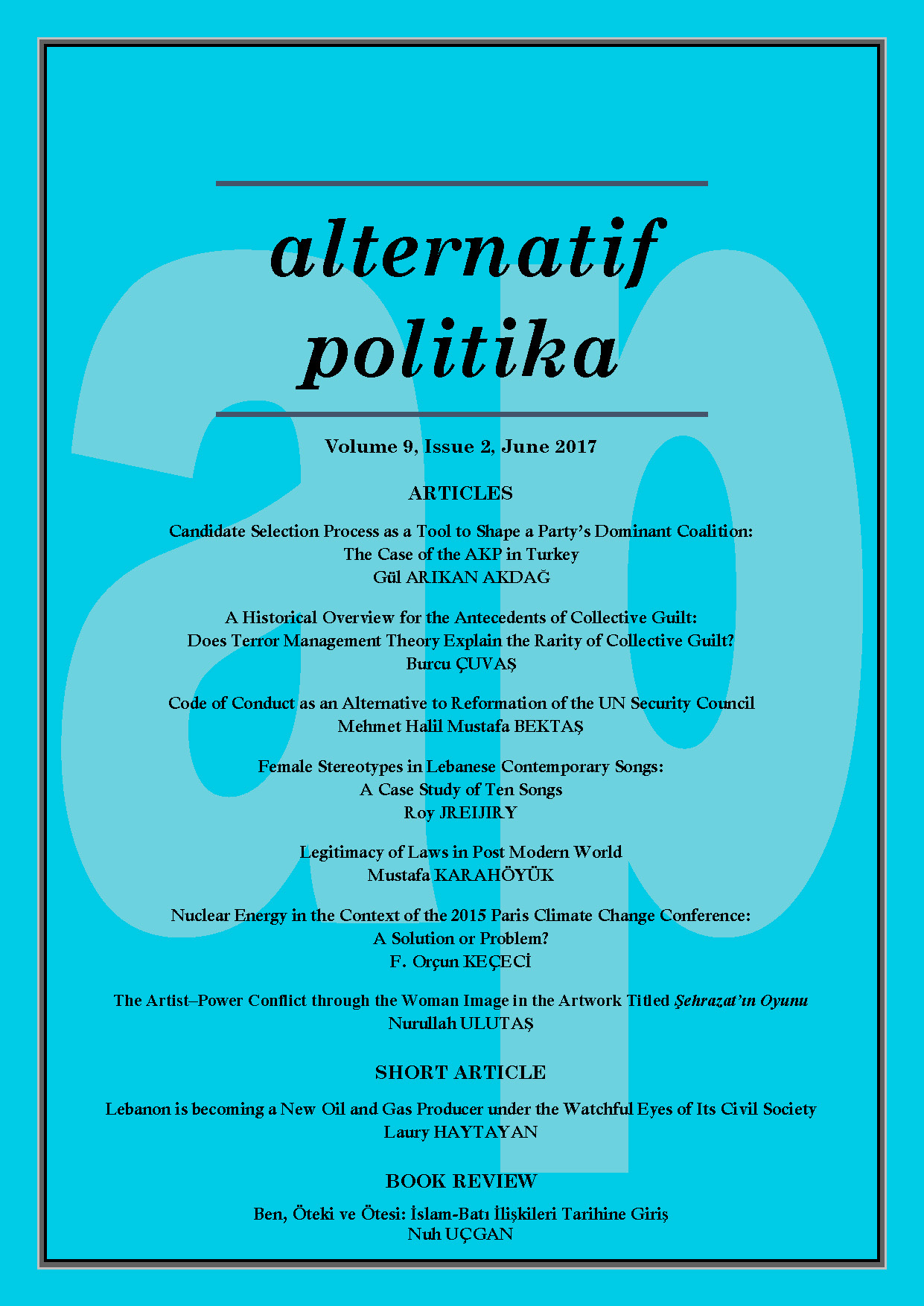A HISTORICAL OVERVIEW FOR THE ANTECEDENTS OF COLLECTIVE GUILT: DOES TERROR MANAGEMENT THEORY EXPLAIN THE RARITY OF COLLECTIVE GUILT?
A HISTORICAL OVERVIEW FOR THE ANTECEDENTS OF COLLECTIVE GUILT: DOES TERROR MANAGEMENT THEORY EXPLAIN THE RARITY OF COLLECTIVE GUILT?
Author(s): Burcu ÇuvaşSubject(s): Psychology, Social psychology and group interaction
Published by: Rasim Özgür DÖNMEZ
Keywords: Collective Guilt; Identification; Responsibility; Illegitimacy; Mortality
Summary/Abstract: Collective guilt is a relatively new concept studied in intergroup relations in social psychology. Collective guilt suggests a new way of studying positive intergroup relations; thus, investigation of the factors underlying collective guilt seems more essential. Starting from this point of view, the purpose of this study is to look at the antecedents of collective guilt by considering its historical development. Since collective guilt is an aversive emotion, people are prone to reject it. That is why it is a rare emotion. Therefore, another concern of this study is to use terror management theory in order to provide reasons for why this emotion can be rare.
Journal: Alternatif Politika
- Issue Year: 9/2017
- Issue No: 2
- Page Range: 164-191
- Page Count: 28
- Language: English

